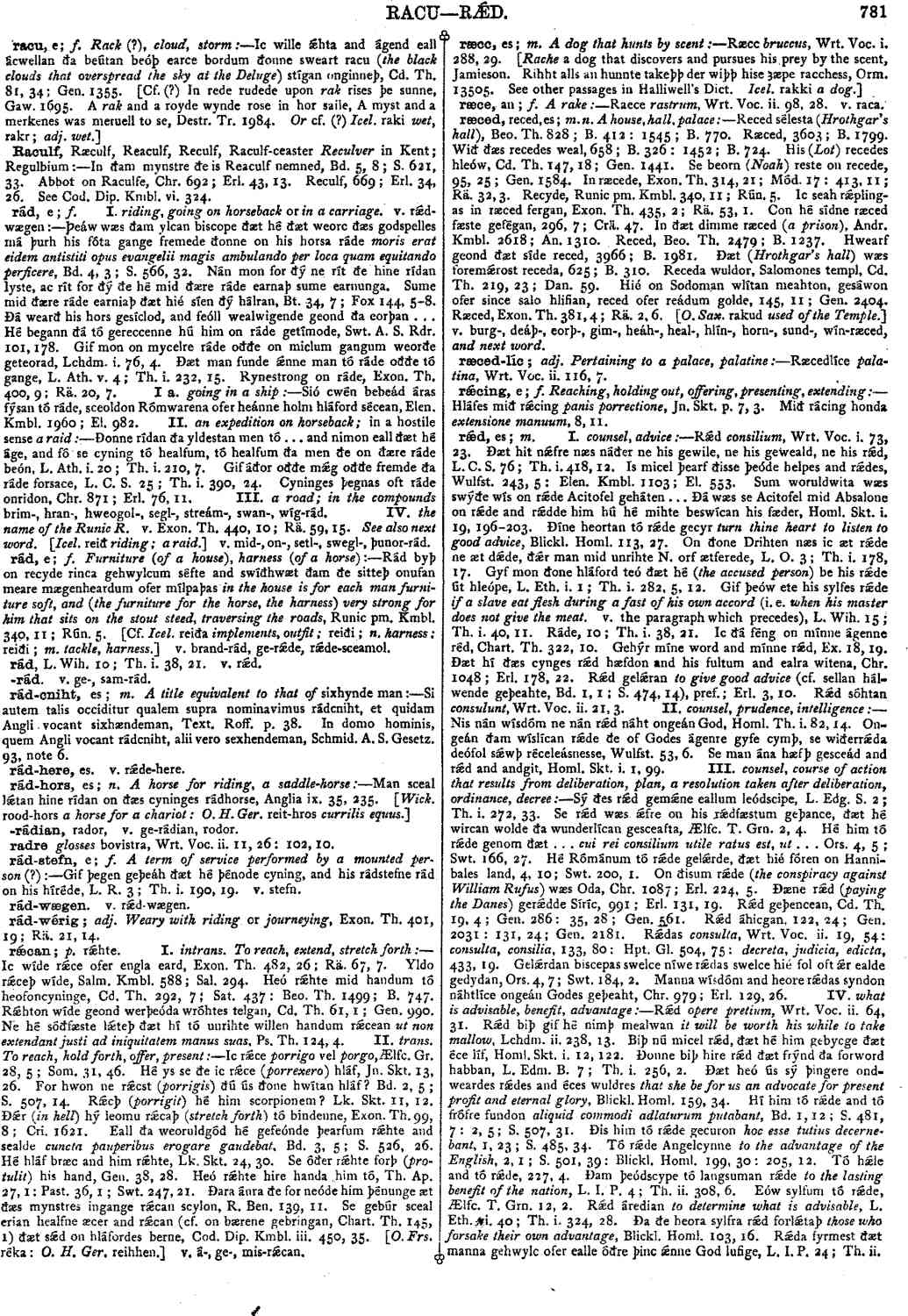rǽcan
- verb [ weak ]
-
Ic wíde rǽce ofer engla eard,
- Exon. Th. 482, 26; Rä. 67, 7.
-
Yldo rǽceþ wíde,
- Salm. Kmbl. 588; Sal. 294.
-
Heó rǽhte mid handum tó heofoncyninge,
- Cd. Th. 292, 7; Sat. 437 : Beo. Th. 1499; B. 747.
-
Rǽhton wíde geond werþeóda wróhtes telgan,
- Cd. Th. 61, 1; Gen. 990.
-
Ne hé sóðfæste lǽteþ ðæt hí tó unrihte willen handum rǽcean
ut non extendan justi ad iniquitatem manus suas,
- Ps. Th. 124, 4.
-
Ic rǽce porrigo vel
porgo,
- Ælfc. Gr. 28, 5; Som. 31, 46.
-
Hé ys se ðe ic rǽce (
porrexero
) hláf,- Jn. Skt. 13, 26.
-
For hwon ne rǽcst (
porrigis
) ðú ús ðone hwítan hláf ?- Bd. 2, 5; S. 507, 14.
-
Rǽcþ (
porrigit
) hé him scorpionem?- Lk. Skt. 11, 12.
-
Ðǽr (
in hell) hý leomu rǽcaþ (stretch forth )
tó bindenne,- Exon. Th. 99, 8; Cri. 1621.
-
Eall ða weoruldgód hé gefeónde þearfum rǽhte and sealde
cuncta pauperibus erogare gaudebat,
- Bd. 3, 5; S. 526, 26.
-
Hé hláf bræc and him rǽhte,
- Lk. Skt. 24, 30.
-
Se óðer rǽhte forþ (
protulit
) his hand,- Gen. 38, 28.
-
Heó rǽhte hire handa ,him tó,
- Th. Ap. 27, 1 : Past. 36, 1; Swt. 247, 21.
-
Ðara ánra ðe for neóde him þénunge æt ðæs mynstres ingange rǽcan scylon,
- R. Ben. 139, 11.
-
Se gebúr sceal erian healfne æcer and rǽcan (cf. on bærene gebringan,
- Chart. Th. 145, 1)
Bosworth, Joseph. “rǽcan.” In An Anglo-Saxon Dictionary Online, edited by Thomas Northcote Toller, Christ Sean, and Ondřej Tichy. Prague: Faculty of Arts, Charles University, 2014. https://bosworthtoller.com/25456.
Checked: 0